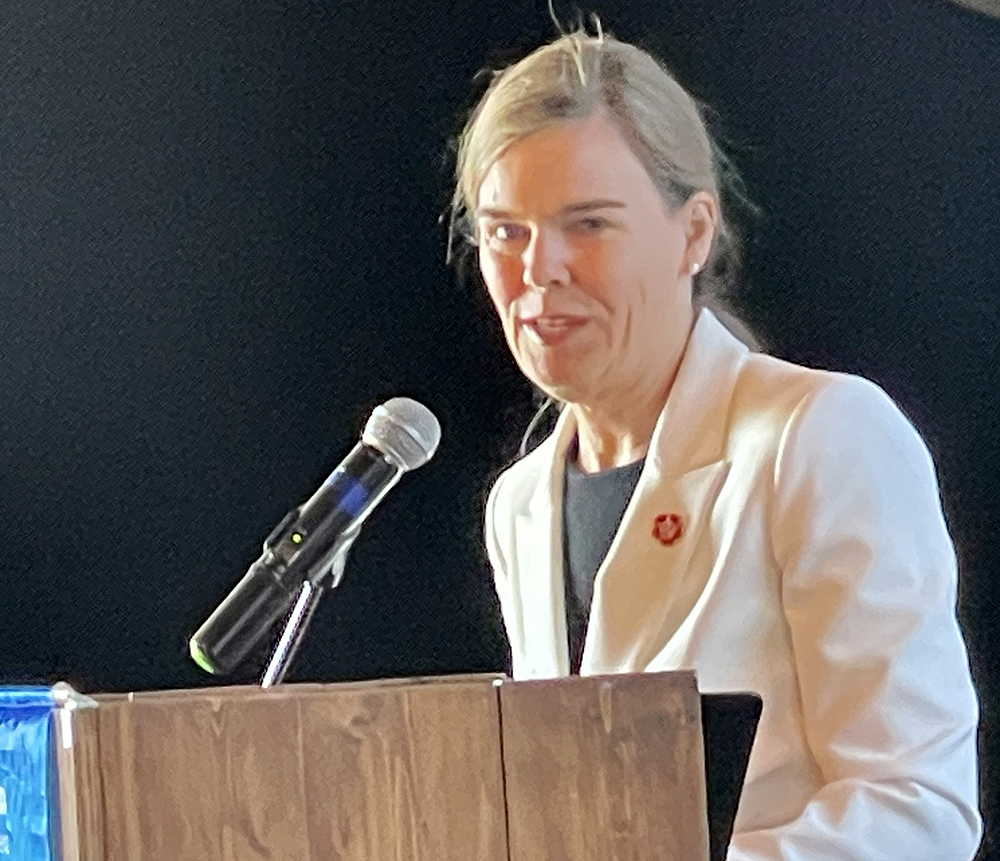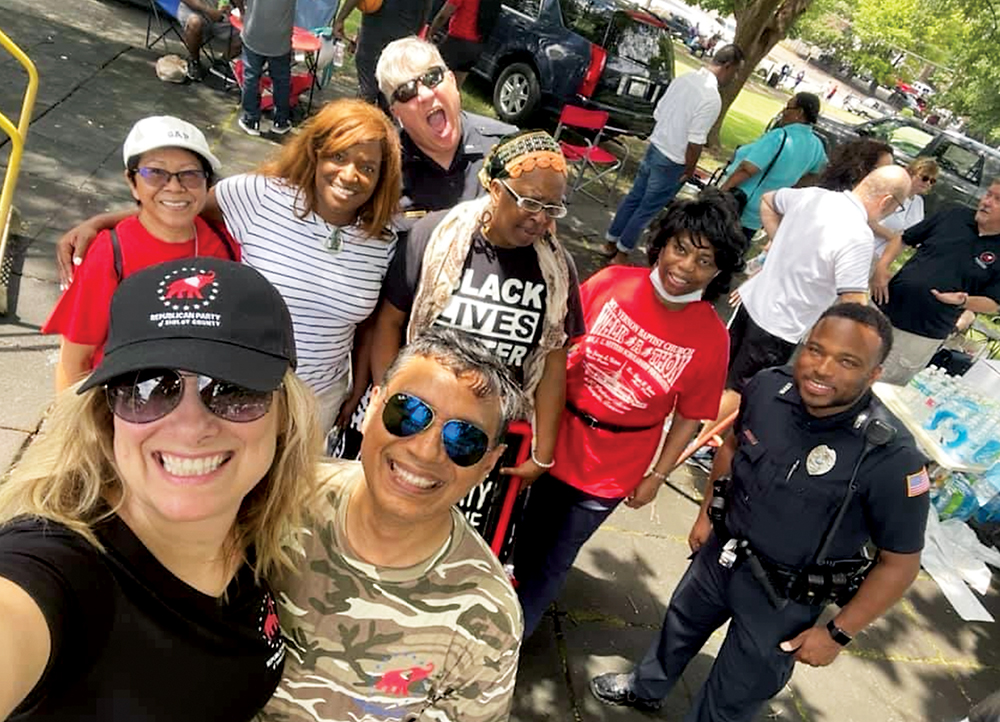The outlook for a hotly contested 2022 district attorney general’s race was intensified this week by an announcement from former Shelby County Commissioner and University of Memphis law professor Steve Mulroy that he very likely would seek the Democratic nomination to oppose the re-election of incumbent Amy Weirich, a Republican.
Mulroy would thereby become the second Democrat in the race, along with the already declared Linda Harris.
Much of the contest, in either eventuality, would hinge on party-line issues. But in a luncheon address last week to members of the Rotary Club of Memphis, Weirich demonstrated why she is credited with having substantial crossover potential.
She bit the bullet on an issue on which her GOP party-mates in state government can be — and have been — seriously faulted.
“Gun crime is top-of-mind everywhere we go,” said Weirich to the Rotarians. Referring to figures on a PowerPoint slide, she noted, “We are up probably over 21 percent.”
She continued: “Now as we sit here today as compared to when that chart was made, but gun crime is prevalent and of great concern. One of the contributing factors is legislation that was passed in 2014.”
This was the guns-in-cars bill, passed by the General Assembly’s Republican majority and allowed to become law by Republican Governor Bill Haslam. “Back in 2010, we had less than 300 guns stolen from cars,” Weirich said.
Referring again to the slide, she said, “You can see, as of October 20, 2021, we’ve had 1,286. Now that it is November 30, I would imagine that the figures are probably close to 1,400 guns stolen from cars.”
As she reminded her auditors, “When guns-in-cars legislation passed in 2014, it enabled people to travel around with guns in their cars without a special permit. And that meant more guns in cars on the street.
“It’s susceptible to theft. And people that are stealing guns are not doing so to do anything altruistic with it, correct? They’re doing it to continue to victimize citizens in our community, to continue to prey on innocent people. So that’s kind of what the landscape is right now.”
Moments later she dilated further, “One of our senators a few weeks ago made the comment about how far we’ve come economically as a state because everybody in the former governor’s [Haslam’s] administration was focused on turning that economic engine around.
“And it occurred to me just like if we had that same focus for public safety, just think what we could do, if everyone in Nashville and beyond was focused on victims of crime and doing everything we can to respect the victims of crime, to hold offenders accountable, and to treat public safety as the number-one priority that it should be.”
When audience members raised concerns about potential gun massacres occurring in Tennessee, Weirich said, “The answer to everyone’s nightmare is yes, it could very well happen here, particularly since the governor [current GOP Governor Bill Lee] signed into law permitless carry.
“And so now it takes away the ability in law enforcement to come up and ask to see your permit, if you are openly carrying in this restaurant or walking down the street or going into Home Depot. And that is an issue for law enforcement and will continue to be an issue.”
She would add, on the prospect of corrective action by the General Assembly, “I don’t know of any common sense legislation that’s floating around.”
Credit Weirich, on that issue, for some nonpartisan candor.


